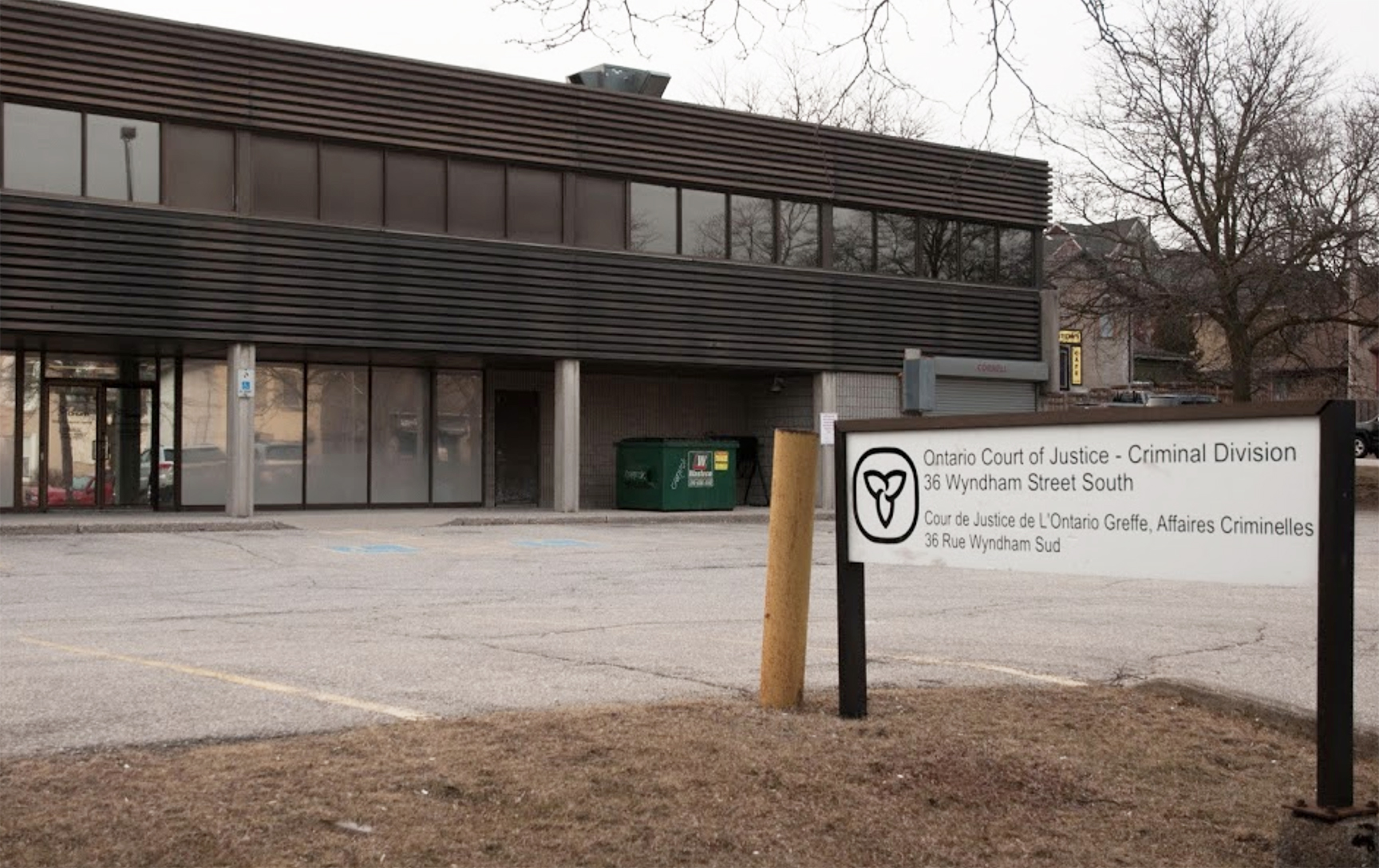GUELPH – Brenda Dolderman returned to Guelph court on June 27 after police alleged she breached a court-ordered condition of a Feb. 23 house arrest sentence.
Judge Dominique Kennedy sentenced the Centre Wellington resident to three months of imprisonment at home, known as a conditional sentence, followed by a year of probation, after Dolderman pleaded guilty last year to obstructing justice.
The conviction stemmed from an investigation into the origins of secretly recorded conversations between OPP officers at the Rockwood OPP detachment in 2020, later obtained by Dolderman and provided to police.
The recordings purportedly captured conversations between Wellington OPP officers discussing unproven sexual assault allegations lodged by officers against Dolderman’s husband, Michael Dolderman, a longtime Wellington OPP officer.
Recordings are sealed by the court, and neither the public nor media can find out what was said by the officers, but some peripheral detail has emerged through court proceedings.
A week after the February sentencing, Dolderman was charged by police with disclosing unlawfully obtained conversations in a lengthy March 2 email she sent to three senior OPP officials, including OPP Commissioner Thomas Carrique.
The issue wasn’t the email itself, but what was in it, Crown attorney Jason Nicol told the court during a June 27 hearing that began in the morning and stretched into the afternoon.
The hearing focused not on the latest charge, but on whether Dolderman had violated a court order to keep the peace and be of good behaviour (part of her earlier sentence) by quoting from the illegal recordings, and providing links to them, in her 20-page March email.
Nicol told the court that Dolderman’s email contained “salacious details” about Wellington OPP officers and it stated “[I] hold information that could seriously hurt many people and embarrass the OPP.”
Dolderman unnecessarily quoted from “page after page after page” of the “radioactive” transcripts, the prosecutor argued.
Going a step further, Nicol posited that Dolderman’s true intention in sending her email was not to further justice, as she testified, but to “threaten,” “embarrass” and “intimidate” the OPP.
“You had no sincere interest in trying to further a criminal investigation,” the attorney suggested during cross examination.
Dolderman testified that after she was provided the recordings by a colleague of her husband Michael, she heard “a lot of problematic things,” including officers who were not supposed to communicate about the allegations against her husband discussing them in “great detail.”
The 55-year-old told the court of officers collaborating to engineer testimony, reenacting certain allegations, and witnesses who spoke about other officers who “hated Mike.”
Dolderman testified she became worried about due process regarding the investigation into her husband, and was concerned its direction was being influenced by the complainants.
Dolderman told the court she believed the OPP hadn’t fully investigated the recordings, which she originally provided to police at the Aboyne OPP detachment in February of 2020.
“I was hoping the OPP would investigate,” Dolderman explained of her intent in sending the March email.
She believed the lengthiest of the two transcripts hadn’t been reviewed, Dolderman testified, and she worried the very authorities with the power to investigate were left without a fulsome picture.
Defence lawyer Alison Craig argued that an exemption in the Criminal Code of Canada allows for Dolderman to disclose the unlawfully obtained conversations to police in the interest of furthering justice.
“That’s exactly what she did,” Craig asserted, noting Dolderman had done so before without being charged.
According to court documents, Dolderman wrote in her email, “I have only shared the recordings with the OPP and lawyers.”
“I ask you to unbiasedly listen to these conversations,” she wrote, in part.
Craig said her client had years to send transcripts “here, there, and everywhere,” including the media, but chose instead to stick with the judicial system, going so far as to seek legal counsel before sending the March email.
“She’s asking for an investigation,” Craig reiterated, adding that on page 18 of Dolderman’s email, it’s stated that she is asking for a “proper and independent investigation into these recordings.”
“I think it’s pretty clear there’s no breach,” Craig argued.
“It’s a bit, frankly shocking, that we’re even here arguing about this.”
In her decision returned later in the afternoon, Kennedy said the Crown failed to convince her that Dolderman was being insincere and not behaving well.
“Objectively speaking, I do not find Ms. Dolderman’s actions to be reasonable,” Kennedy said.
“I do not accept everything she said in court,” she continued, noting “certain aspects” of Dolderman’s testimony were “problematic.”
“Despite my objections to her methods, and what I view to be conduct that closely resembles her previous obstruction to justice,” Kennedy said, “I believe that she believes this material will be relevant to an ongoing investigation.”
“I find that the Crown has not convinced me … that Ms. Dolderman does not sincerely hold the belief that this material will be relevant to her husband’s case, and that that is why she sent it to the OPP,” Kennedy said, dismissing the allegations.
At the Crown’s request, four new conditions were added to Dolderman’s probation order, requiring any audio recordings and transcriptions to be destroyed, as well as prohibiting her from accessing, transmitting or discussing them.
The prosecution is now mulling over whether it will proceed on the actual charge (disclosing unlawfully obtained conversations) in light of the judge’s decision.




